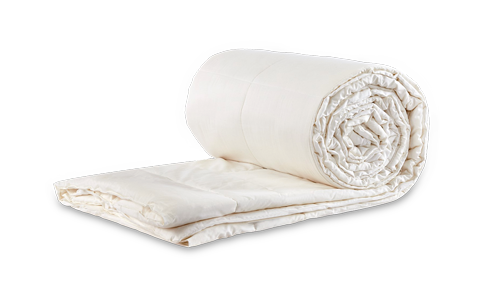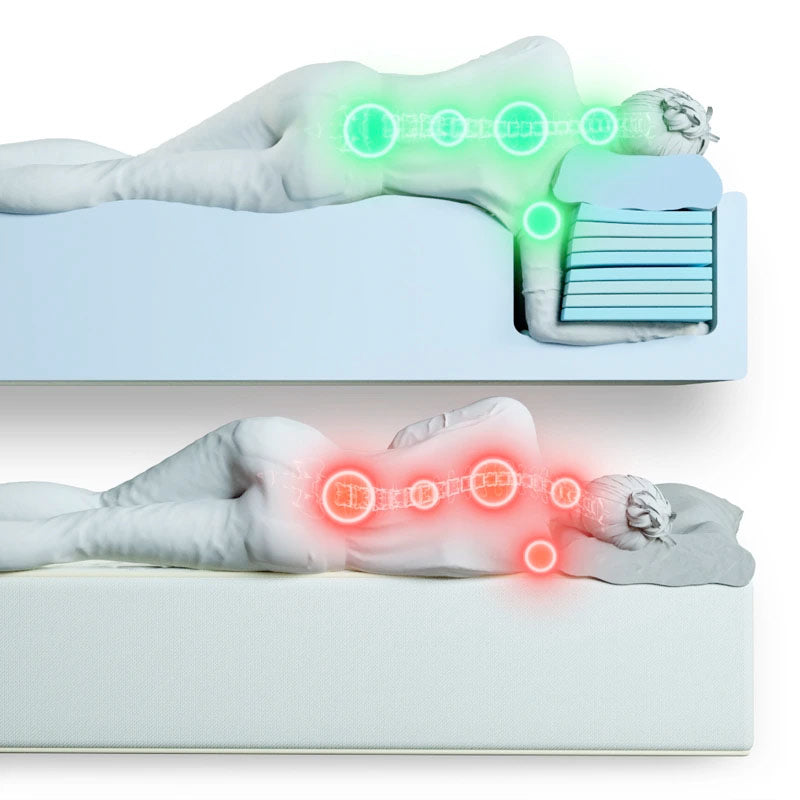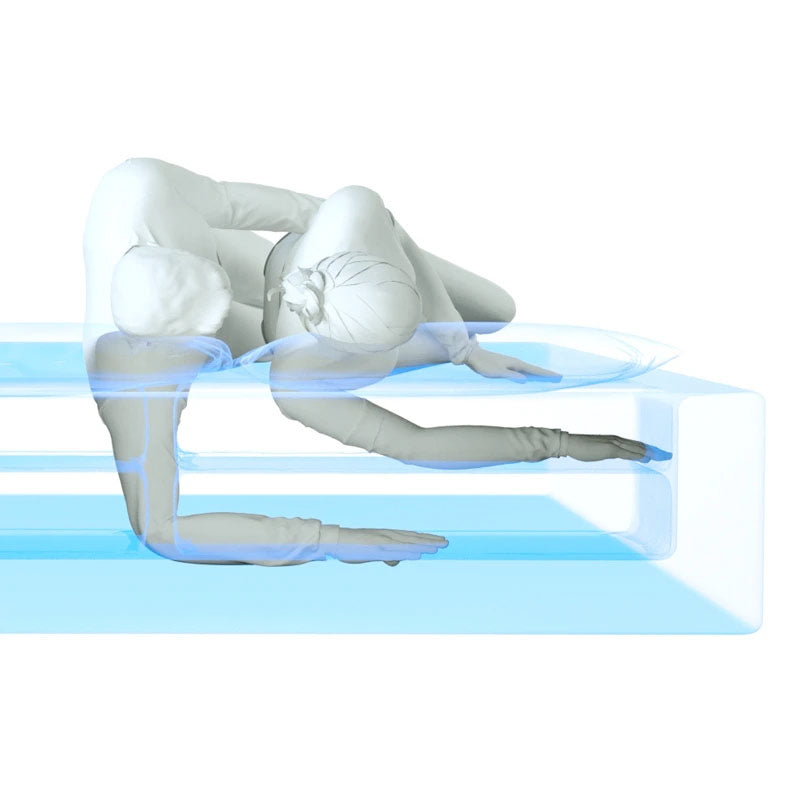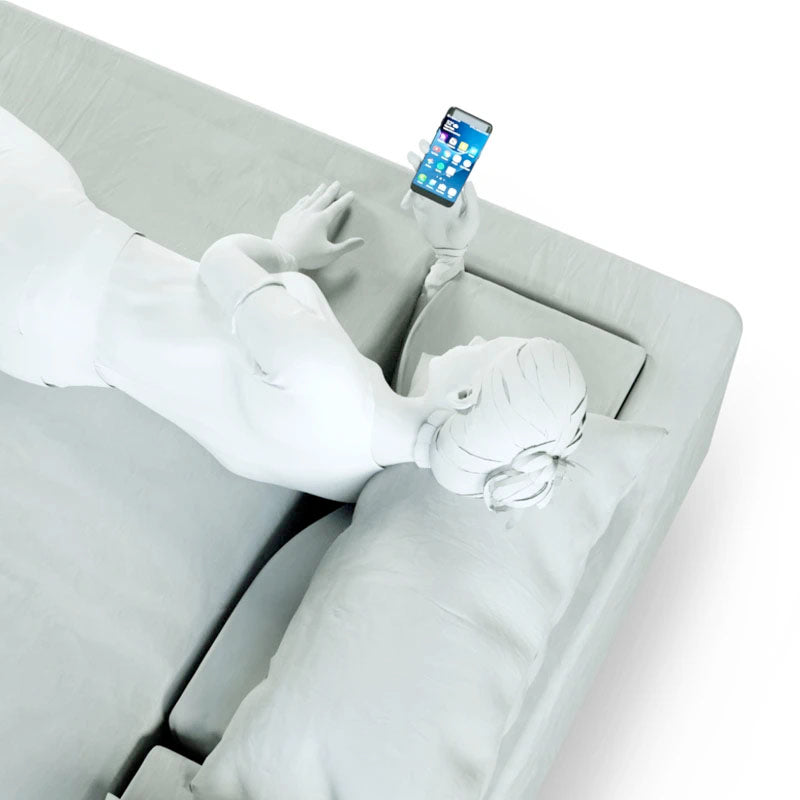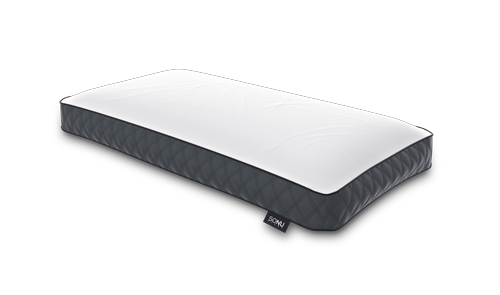People are functioning on fewer and fewer hours of sleep these days. But is that healthy?
The power of sleep can’t be understated. Getting enough sleep gets us through the day, and it allows us to tackle everything life throws at us. It is impossible to function without sleep. And yet, people everywhere try to make it on just a few hours of sleep.
Are six hours of sleep enough to help you get through the day, or is more sleep required? Here’s how much sleep experts say you need to feel well-rested, and how SONU can help you get the best sleep of your life.
How Much Sleep Do We Need?
So, exactly how much of a good night’s sleep do you really need? The answer varies by age group. Here’s a handy chart noting the minimum amount of sleep each age group requires.
| Age Group | Minimum Amount of Sleep | |
| Newborn | 0-3 months | 14 |
| Infant | 4-11 months | 12 |
| Toddler | 1-2 years | 11 |
| Preschool | 3-5 | 10 |
| School age | 6-13 years | 9 |
| Teen | 14-17 years | 8 |
| Young adult | 18-25 years | 7 |
| Adult | 26-64 years | 7 |
| Older adult | 65 years+ | 7 |
For adults, the minimum amount of recommended hours for sleep is seven hours. And there’s plenty of research to back that up.
We’ve all heard the recommendation that we get eight hours of sleep per night. However, researchers have found that seven hours of sleep per night are enough to feel well-rested, and it can lead to a long life. People who sleep for seven hours have lower death rates than people who sleep less than four hours, or eight or more hours.
However, this doesn’t mean that adults who sleep for long periods will definitely lead shorter lives. It primarily points out that seven hours of sleep is enough for most adults to function and live well. How long we live is also impacted by our lifestyles, diets, health problems, and how much exercise we get.
What Does Sleep Do for the Body?
It’s important to get enough sleep so you feel ready to take on the day. Being well-rested has a number of benefits. When you get enough sleep, you are more alert, you communicate better, your mood improves, and you experience less stress.
Being well-rested helps you think clearly, allowing you to make good decisions. Your relationships benefit when you sleep well because you are more likely to get along with people.
Getting enough deep sleep helps you manage your weight and prevent weight gain, support cognitive performance, aid immunity, and reduce your risk for health problems like heart disease.
If you are in need of a good night’s sleep, the SONU Sleep System can help. With sink-in support, a top layer of plush serene foam, and the patented, immersive Comfort Channel, the SONU mattress will help you get the rest your body has always needed.
What Are the Dangers of Sleep Deprivation?
When it comes to sleep deprivation, people often forget the issues a lack of sleep can cause. Insufficient sleep has been linked to a number of chronic illnesses.
Diabetes
People who do not get enough sleep could develop type 2 diabetes. Type 2 diabetes is essentially an issue that impacts the way your body regulates and uses sugar or glucose as energy.
The quality of sleep and the amount of sleep you get are linked to blood sugar control. Increasing your hours of sleep can help you control your blood sugar levels.
Weight
Not getting enough sleep makes it harder to maintain healthy body weight. Short sleep cycles can result in extra body weight across all age groups. Inadequate sleep slows down the part of the brain that manages appetite and energy, which is known as the hypothalamus.
Heart Disease
If you are sleep-deprived, you could be at risk for heart disease and similar ailments. If your sleep is disrupted by sleep apnea, there is evidence that it can lead to atherosclerosis, the hardening of your arteries. Having sleep apnea could mean you are in the early stages of developing heart disease.
Mood Disorders
Irregular sleep is a symptom of depression and anxiety. Although many depressed people sleep more than normal, there are some who are sleep deprived, which only worsens their depression. Not getting adequate sleep is also horrible for anxiety. Your symptoms, such as agitation, can become worse when you haven’t slept enough.
Sleep deprivation isn’t just bad for your health. It can be dangerous. Countless drivers get into driving accidents each year because someone fell asleep behind the wheel.
How Can I Get Enough Sleep?
Now that you know that the recommended amount of sleep is seven hours, how do you go about getting better sleep? Well, you need to practice good sleep hygiene.
Sleep hygiene can be understood as the steps you can take to help enjoy a better night of sleep using behavioral changes. Behavioral interventions include maintaining a sleep schedule, avoiding media, and reducing your caffeine intake, to name a few.
Keep reading to learn some tips for creating sleep habits that you can stick to.
Get Regular Exercise
Exercising at just the right time can help you fall asleep at night and improve the quality of your sleep. You want to avoid exercising right before bed since it can release endorphins, which wake the body up.
But if you’ve exercised earlier in the day, your body will start to relax as you cool down, helping you reach a calm state that’s perfect for going to sleep.
Create a Sleep Schedule
You should be setting a regular bedtime. It may be hard to adjust at first. Once you get in the habit of going to bed at the same time each night, your body will adjust and you will fall asleep faster.
Turn Off the TV
An hour or so before you go to bed, turn off your television, put down your cell phone, and turn off any other distracting media. Devices emit blue light, which can suppress melatonin levels, making it harder for you to fall asleep.
Avoid Caffeine
That little afternoon coffee that you consume regularly does more harm than good. Caffeine remains in the body for several hours after you consume it. That’s why health experts recommend that you stop consuming caffeine by the early afternoon if you don’t want it to interfere with your sleep cycle.
Don’t Nap
As tempting as it is to take a nap during a long day, it can have a negative effect on your ability to fall asleep at bedtime. Napping during the day can lead to sleep deprivation and insomnia.
Set the Scene
Picture the perfect bedroom for sleeping in. What temperature is it? Cool or hot?
Do you require background noise, like sounds from a white noise machine? Do you sleep in complete darkness or do you like the light from the moon to shine through your window?
Consider all of this so you can create the perfect atmosphere and bedtime routine for sleep.
Buy a Comfortable Mattress
You’ve set your bedtime and created the perfect sleep environment, but something is missing. Your current mattress isn’t as comfortable as you’d like it to be, which makes falling asleep difficult.
Out with the old and in with the new. Choose a mattress that is made of material that supports your body while you sleep or caters to your particular sleeping position.
That old, flat, coil spring mattress isn’t your only option anymore. Take your pick of latex, gel, hybrid, or foam mattresses. There are so many for you to choose from that one is bound to meet your needs.
SONU Sleep has created a mattress that is so unique and so comfortable, you won’t believe how incredibly well you will sleep. Surrender to the body-conforming, temperature-moderating serene foam and let your arms and shoulders immerse into the innovative, patented Comfort Channel system.
Conclusion
Is 6 hours of sleep enough? No, but it’s close. Your best bet is to get at least 7 hours of sleep per night. However, the exact amount of sleep you require depends on your age group.
Getting at least seven hours is beneficial to your overall health and wellbeing. Sleeping enough can prevent chronic diseases, like diabetes and heart disease. It can improve your immune system and keep you alert.
If you are having trouble falling asleep, create a sleep routine to help yourself fall asleep faster and stay asleep. Good sleep hygiene and a good mattress are two key elements of getting the rest you deserve.
Good sleep is only a click away. Head on over to SONU Sleep’s website and check out the mattress that will change your sleep routine and your life.
Sources
Type 2 diabetes - Symptoms and causes - Mayo Clinic
Get Enough Sleep - MyHealthfinder | health.gov
Sleep and Chronic Disease | CDC
People who sleep for seven hours a night live longest | NIH
How Much Sleep Do We Really Need? | Sleep Foundation
Sleep Hygiene Tips, Research & Treatments I Sleep Association
Blue light has a dark side | Harvard Health













